Water tensions remain in the pipeline
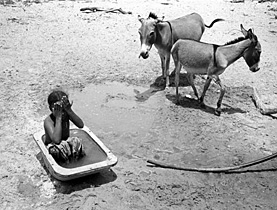
Water wars do not exist, but conflicts certainly do, and climate change will make the problem more acute, expert Kurt Spillmann tells swissinfo.
As United Nations World Water Day is marked, Spillmann says that water education from governments to households is key for tackling water shortages, as is global political action.
This year the UN day’s theme is “Shared Water – Shared Opportunities”, with a focus on transboundary water issues.
There are 263 transboundary lake and river basins worldwide, stretching over 145 countries, according to the UN. With nations needing to fulfil their needs and scarcity already apparent, some observers have forecast a rise in conflicts over water.
Spillmann is the former director of the Centre of Security Studies and Conflict Research at the Federal Institute of technology in Zurich. He has studied water conflicts for many years.
swissinfo: Can we speak of water wars in the world at the moment?
Kurt Spillmann: I don’t think so at all because a look back through history shows that for millennia we haven’t had wars caused by water problems. There are and have always been water conflicts of course, but these have always been either local or regional. If we talk of wars, then we perceive an organised army against another organised army and I cannot foresee for the time being any wars of this sort originating from water problems.
swissinfo: Where are the world’s water conflict hotspots?
K.S.: Africa, Asia and sub-Saharan Africa are all areas where water is scarce, where farmland is scarce and where the population increases are large. These are places where conflicts might arise around wells and rivers. In the northern hemisphere I don’t foresee any large conflicts of this sort.
swissinfo: So basically Europe is out of the picture?
K.S.: For the time being, yes. We know that the prospect of a destabilising climate worldwide means that Europe is very likely to get hotter summers too and more instable climate periods. What kind of consequences this will have, we do not know, but it will not be as much as the developing countries in Africa and Asia are going to experience.
swissinfo: Climate change could mean more potential water conflicts worldwide or at least in developing countries.
K.S.: Yes, but mostly on the local and regional level. We have around 25 million water refugees leaving areas where water has become too scarce to survive. But these people don’t usually migrate over large distances. Either they are physically too weak or they don’t have the economic means to do so. With the climate situation becoming more serious we will have large masses of people migrating and how far these waves of water refugees are going to go is not foreseeable right now, but they might lead to numbers of people coming to Europe.
It’s possible that the many Africans coming to Italy from the northern African shores are already a sign of the larger waves that will follow in the coming decades. But this is a much slower process and I don’t think we can see changes from one year to the next in this respect.
swissinfo: There’s currently a lot of talk of a water crisis.
K.S.: A water crisis means there are more people, and more people demand more water. We can save a lot of water, but efficiency and technical measures, such as desalination or drop irrigation, will only provide around 50 per cent of the additional water needed by the increased population in 2050.
Therefore we will run into serious problems which we have to try to attack by educating people better, using more advanced methods in agriculture, financing better seeds and by financing elementary education for women in particular, who are usually responsible for the water management at the household level.
Then of course we need political solutions, systems of rules that are larger, that encompass many states and that might be of global reach. We have to start building a better understanding of water problems and management from the bottom up, as well as from the top down – from households up to the community and regional authorities and from governments downwards.
swissinfo: Are there enough instruments to regulate transboundary water issues?
K.S.: Not yet. There are many successful examples, like on the Rhine or at Lake Constance to take two nearby, and in India and in Vietnam. And even in Israel there is a lot more understanding of water-sharing issues, even among opposed parties. But instruments always have always to start with groups who want to talk and there non-governmental organisations (NGOs) might be very important with their experience in getting these parties engaged in a real problem-solving dialogue.
swissinfo: Does the United Nations have to take a lead?
K.S.: Yes, indeed they are doing so. There are a great many UN institutions which are already dealing with water issues. It’s very worthwhile and of great value that this World Water Day has been proclaimed and that the UN is trying to educate people to wake up to the importance of the water issue.
swissinfo: What can Switzerland do?
K.S.: The Swiss Agency for Development and Cooperation is a very valuable instrument. Of course it has limited means, but it provides valuable work with the NGOs and is trying to work from bottom up and the top down to instruct governments as well as single households and communities in water-management problems.
Even though Switzerland has a limited experience in these issues, it might try to share this with the parties involved. Our contribution might be small, but it might still make a difference in a few cases.
swissinfo-interview: Isobel Leybold-Johnson in Zurich
Most transboundary river basins are shared between just two countries, but there are 13 basins worldwide that are shared between five to eight countries. Five river basins – the Congo, Niger, Nile, Rhine and Zambezi – are shared between nine to 11 countries. The Danube River Basin covers a record 18 countries.
In the past century more than 200 water-related treaties have been negotiated and signed. The first is thought to date from 2,500BC, when the two Sumerian city-states of Lagash and Umma ended a water dispute along the River Tigris.
In the 20th century only seven minor skirmishes took place between nations over shared water resources.
The UN Convention on the Law of the Non-navigational Uses of International Watercourses was adopted in 1997. It sets out the basic rights and obligations between states relating to the management of international watercourses. But it has been ratified by only 16 nations.
Source: UN
International World Water Day is held annually on March 22 to focus attention on the importance of freshwater and to advocate the sustainable management of freshwater resources. It was first held in 1993.
It is one of the UN’s Millennium Goals to “halve, by 2015, the proportion of people without sustainable access to safe drinking water and basic sanitation”. 1.1 billion people currently do not have access to clean water and 2.6 billion lack adequate sanitation.
The UN has also declared 2005-2115 the Water for Life decade.

In compliance with the JTI standards
More: SWI swissinfo.ch certified by the Journalism Trust Initiative



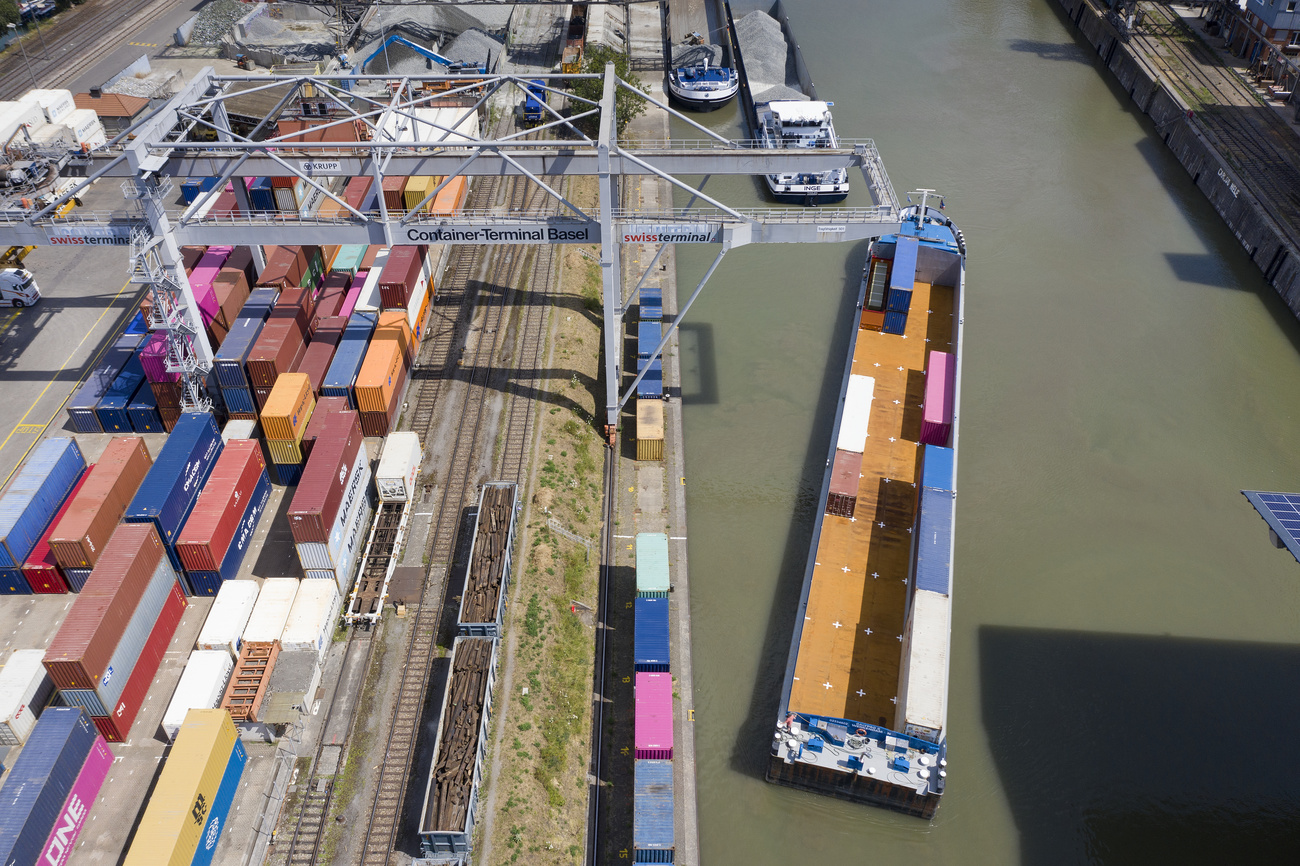





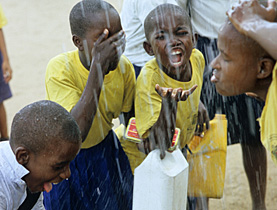
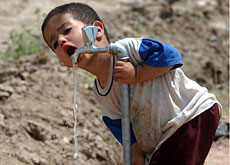
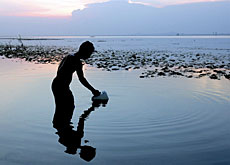
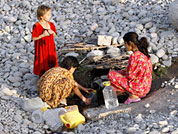
You can find an overview of ongoing debates with our journalists here . Please join us!
If you want to start a conversation about a topic raised in this article or want to report factual errors, email us at english@swissinfo.ch.